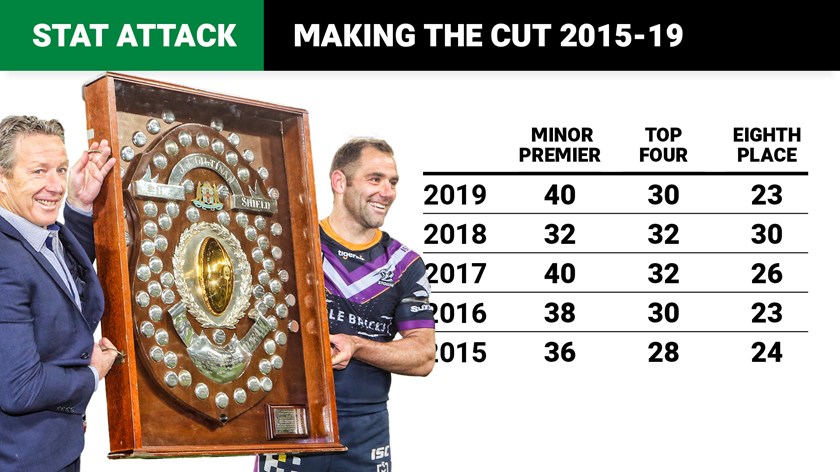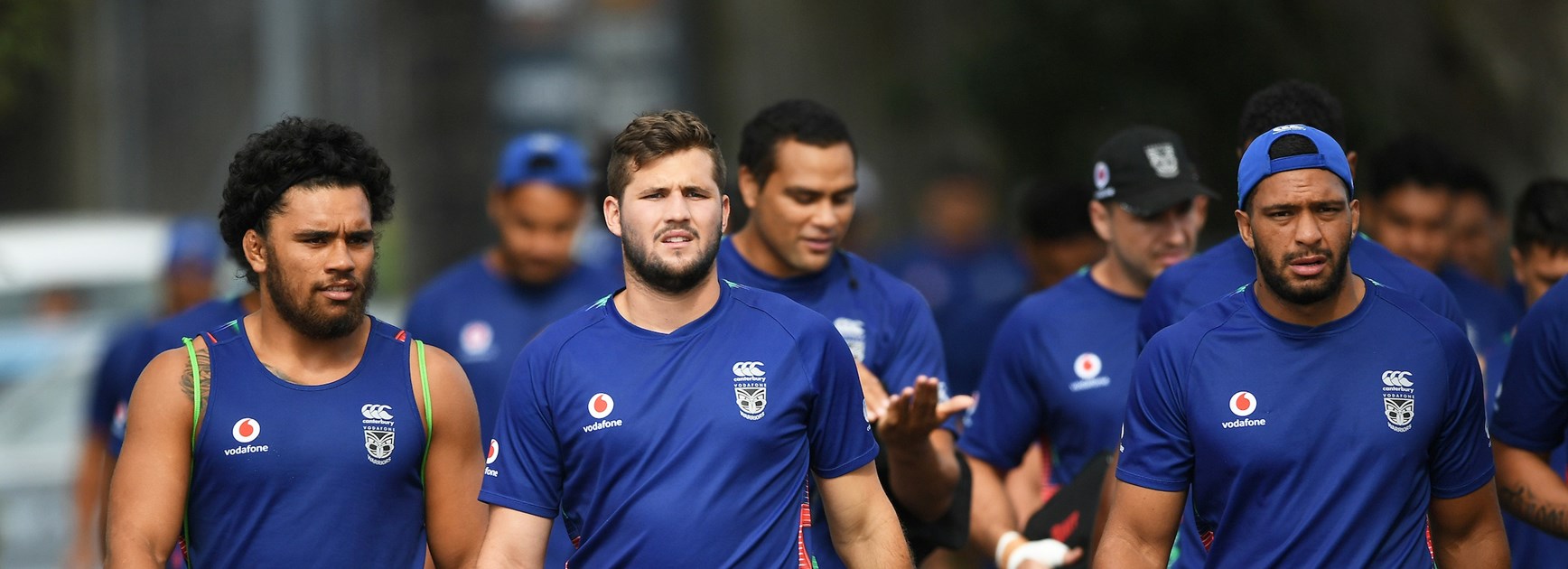The prospect of a shortened NRL season in 2020 could wreak havoc on the Sydney Roosters' chances of becoming the first team since the 1983 Eels to win a third straight title after their sluggish 0-2 start to the season.
A date of return for the NRL season is a long way from being locked in and whether that comes to fruition or not, only time will tell.
Head of the newly formed innovations committee, Wayne Pearce, told NRL.com the competition would be reduced to a 15-round competition if play cannot resume until September, which would mean around 40% of the original Telstra Premiership schedule would be lost due to the impact of the global coronavirus pandemic.
The potential of a 15-round competition – where a team plays each other once – leading into the finals, spells bad news for the back-to-back champions following losses to the Panthers and Sea Eagles in their opening two rounds.
NRL.com crunched the numbers to determine the cut-offs for competition points in a bid to reach the top eight using results based on the last five years of ladder finishes.

In a normal 25-round competition including byes, the magical number of 28 points (including byes) was often referred to as the benchmark for eighth spot.
A reduced 15-round season would feature no bye rounds so this analysis has stripped bye round points from all averages.
Over the past five years, when teams have each played 24 games and had two weekends off for byes and the representative round each season, the minor premiers have finished on an average of 37.2 points.
Based on a 15-round competition, that equates to a baseline of 23.23 points being needed to clinch top spot, so 12 wins will likely be needed to collect the JJ Giltinan Shield.

To finish in the top four, from 2015-19 a tally of 30.4 points on average has been enough to get a double chance in the playoffs. If this year is just 15 rounds, teams are looking at 19 being the cut-off point, so 10 wins to guarantee a top-four spot although nine may be enough.
As far as eighth spot goes, the average number over the past five years has been 25.2, which means 15.75 points or eight wins will likely be needed to get into the finals.
Teams like the Eels, Knights and Raiders, who lead the competition on for and against, are better placed than they would normally be after two rounds to reach the finals alongside fellow unbeaten sides Melbourne, Brisbane and Penrith.
Each of these clubs would need just six more wins from their final 13 games based on this equation to book a post-season berth.
Under a 15-round scenario, the draw would be revised so that each team plays every opponent once.
That’s good news for a team like the Sea Eagles, who started the year at 1-1 after meeting competition heavyweights Melbourne and the Roosters in the opening rounds.
Likewise, Cronulla have started the year 0-2 but have already faced two of last year's top-four sides, South Sydney and the Storm.
For the teams which started the season with successive losses - Gold Coast, the Roosters, Cronulla, St George Illawarra, Canterbury and the Warriors - the equation is tough but a simple one: they have to win at least seven, probably eight, games if there are only 13 rounds remaining or they will have little chance of qualifying for the finals.
Who each team has already played
Eels
Bulldogs (W) Titans (W)
Knights
Warriors (W) Wests Tigers (W)
Raiders
Titans (W) Warriors (W)
Storm
Sea Eagles (W) Sharks (W)
Broncos
Cowboys (W) Rabbitohs (W)
Panthers
Roosters (W) Dragons (W)
Cowboys
Broncos (L) Bulldogs (W)
Rabbitohs
Sharks (W) Broncos (L)
Wests Tigers
Dragons (W) Knights (L)
Sea Eagles
Storm (L) Roosters (W)
Sharks
Rabbitohs (L) Storm (L)
Roosters
Panthers (L) Sea Eagles (L)
Dragons
Wests Tigers (L) Panthers (L)
Bulldogs
Eels (L) Cowboys (L)
Warriors
Knights (L) Raiders (L)
Titans
Raiders (L) Eels (L)






